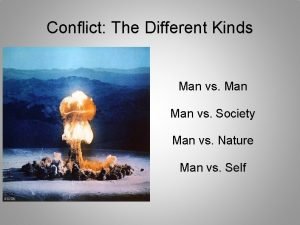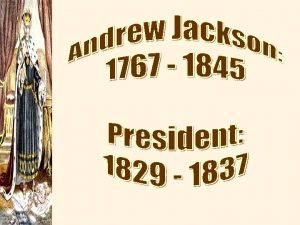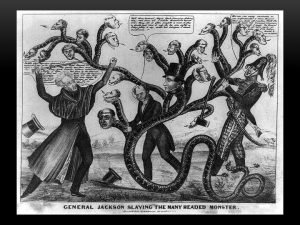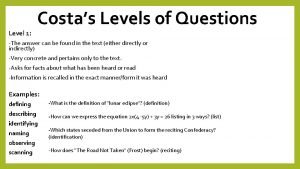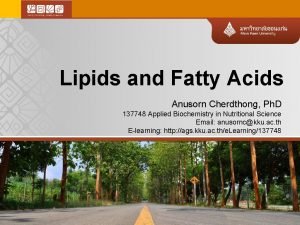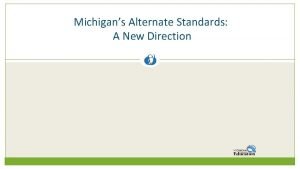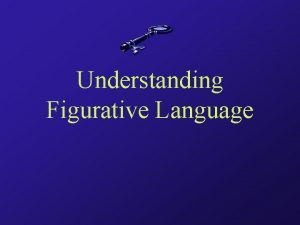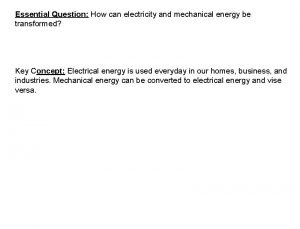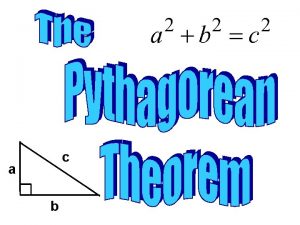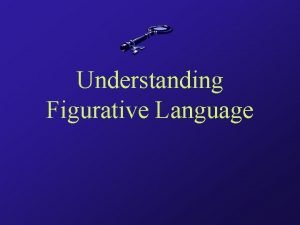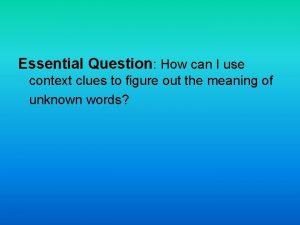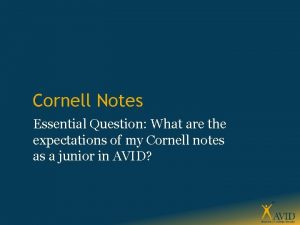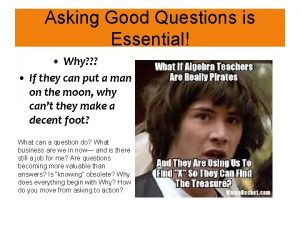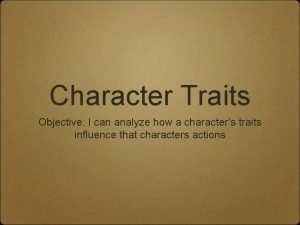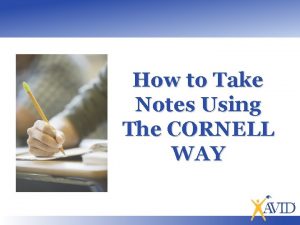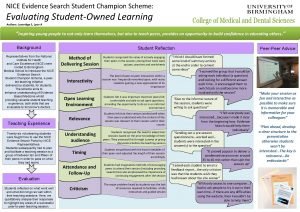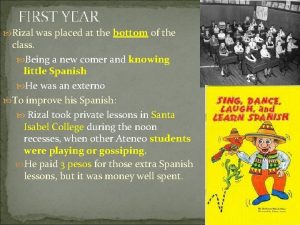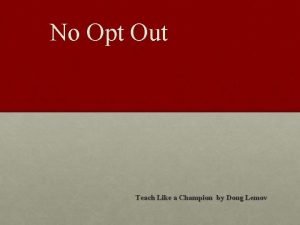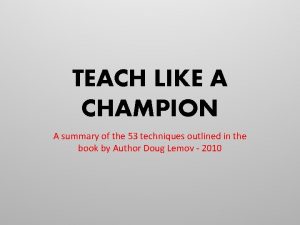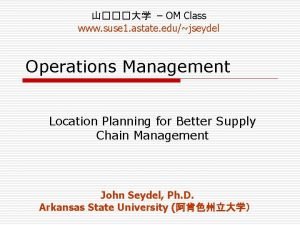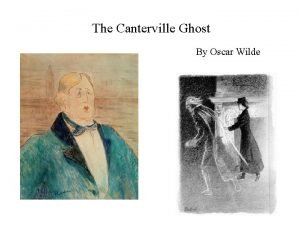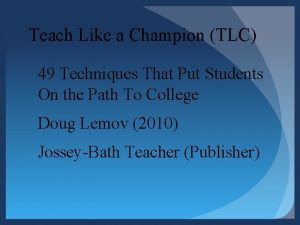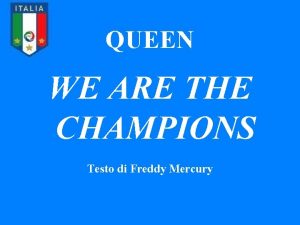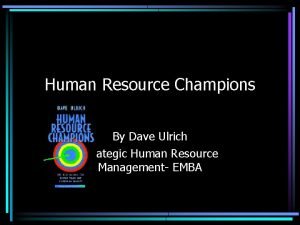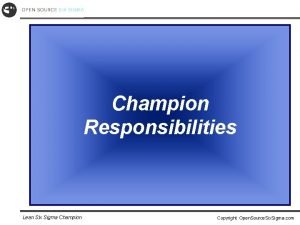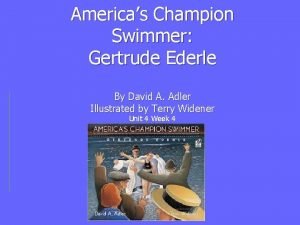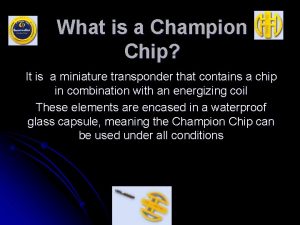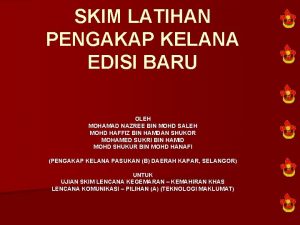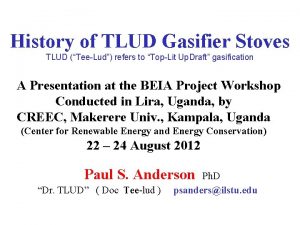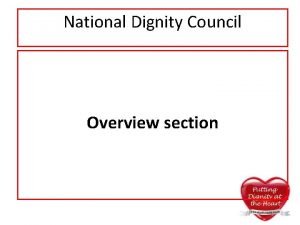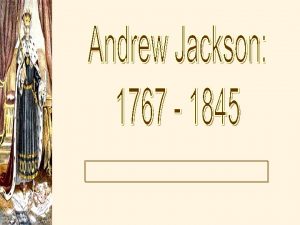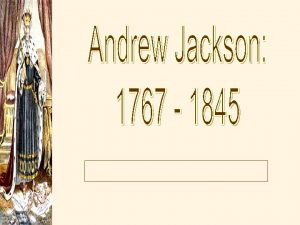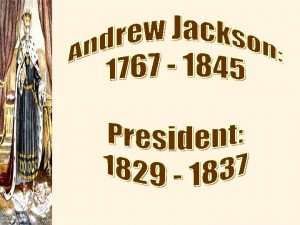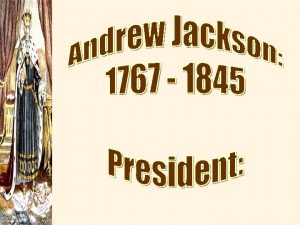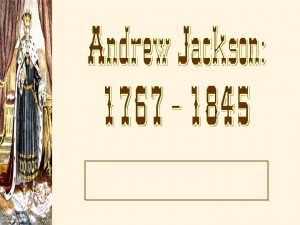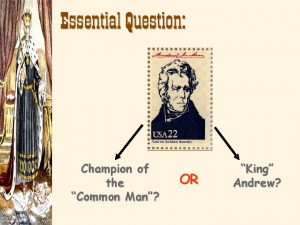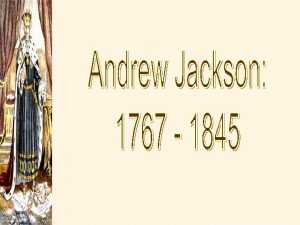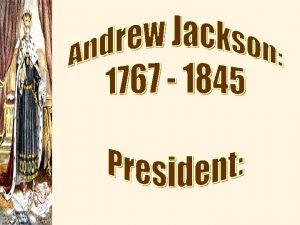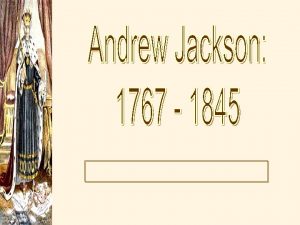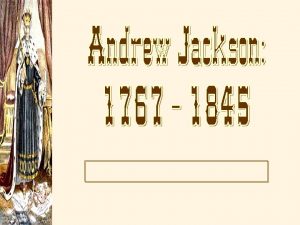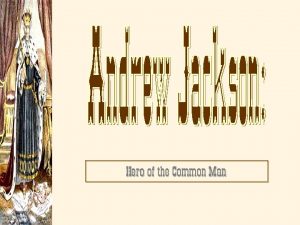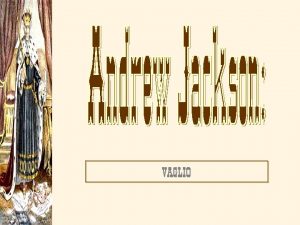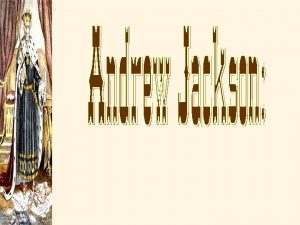Essential Question Champion of the Common Man OR













![Jackson’s Opponents in 1824 Henry Clay [KY] John Quincy Adams [MA] William H. Crawford Jackson’s Opponents in 1824 Henry Clay [KY] John Quincy Adams [MA] William H. Crawford](https://slidetodoc.com/presentation_image_h2/12a94f7ac6f99053ee26902f9830fcb1/image-14.jpg)



















![The Webster-Hayne Debate Sen. Daniel Webster [MA] Sen. Robert Hayne [SC] The Webster-Hayne Debate Sen. Daniel Webster [MA] Sen. Robert Hayne [SC]](https://slidetodoc.com/presentation_image_h2/12a94f7ac6f99053ee26902f9830fcb1/image-34.jpg)









![The National Bank Debate Nicholas Biddle [an arrogant aristocrat from Philadelphia] President Jackson The National Bank Debate Nicholas Biddle [an arrogant aristocrat from Philadelphia] President Jackson](https://slidetodoc.com/presentation_image_h2/12a94f7ac6f99053ee26902f9830fcb1/image-44.jpg)





![The 1836 Election Results Martin Van Buren “Old Kinderhook” [O. K. ] The 1836 Election Results Martin Van Buren “Old Kinderhook” [O. K. ]](https://slidetodoc.com/presentation_image_h2/12a94f7ac6f99053ee26902f9830fcb1/image-50.jpg)




- Slides: 54


Essential Question: Champion of the “Common Man”? OR “King” Andrew?


Voting Requirements in the Early 19 c

Voter Turnout: 1820 - 1860

Campaigning “on the Stump”

Why Increased Democratization? 3 3 3 White male suffrage increased Voters chose their state’s slate of Presidential electors. Spoils system. Popular campaigning (parades, rallies, floats, etc. ) Two-party system returned in the 1832 election: § Dem-Reps Natl. Reps. (1828) Whigs (1832) Republicans (1854) § Democrats (1828)


Jackson’s First Hermitage Residence

First Known Painting of Jackson, 1815

General Jackson During the Seminole Wars


The “Common Man’s” Presidential Candidate
![Jacksons Opponents in 1824 Henry Clay KY John Quincy Adams MA William H Crawford Jackson’s Opponents in 1824 Henry Clay [KY] John Quincy Adams [MA] William H. Crawford](https://slidetodoc.com/presentation_image_h2/12a94f7ac6f99053ee26902f9830fcb1/image-14.jpg)
Jackson’s Opponents in 1824 Henry Clay [KY] John Quincy Adams [MA] William H. Crawford [GA] John C. Calhoun [SC]

Results of the 1824 Election A “Corrupt Bargain? ”


Opposition to John Quincy Adams 3 Some believed he allowed too much political control to be held by elites. 3 Some objected to his support of national economic development on constitutional grounds. § Adams believed a strong, active central government was necessary. Ø A national university. Ø An astronomical observatory. Ø A naval academy. 3 Many Americans saw Adams’ vision of a might nation led by a strong president as a threat to individual liberties.



Tariff Battles 3 3 3 Tariff of 1816 on imports of cheap textiles. Tariff of 1824 on iron goods and more expensive woolen and cotton imports. Tariff of 1828 higher tariffs on imported raw materials [like wool & hemp]. § Supported by Jacksonians to gain votes from farmers in NY, OH, KY. § The South alone was adamantly against it. Ø As producers of the world’s cheapest cotton, it did not need a protective tariff. Ø They were negatively impacted American textiles and iron goods [or the taxed English goods] were more expensive!

Votes in the House for the “Tariff of Abomination”

Land & Indian Policies 3 John Quincy Adams: § His land policies gave westerners anothr reason to dislike him. Ø He attempted to curb speculation for public lands his opponent accused him of denying their individual rights and freedoms to expand westward! § He supported the land rights of Native Americans against white settlers. Ø 1825 govt. officials negotiated a treaty with a group of Creek Indians to cede their land rights to GA. ü The Creek Indians appealed to Adams to renounce the treaty. ü Congress sided with the governor of GA.

The 1828 Election 3 Jackson’s campaign was engineered by Senator Martin Van Buren of NY § He wanted to recreate the old Jeffersonian coalition of: Ø Northern farmers and artisans. Ø Southern slave owners. Ø Farmers with small land holdings. § He created the Democratic Party from the remains of Jefferson’s old party: Ø Created oversaw a national committee that local and state party units. Ø Mass meetings, parades, picnics. § A lot of political mudslinging on both sides.

Rachel Jackson Final Divorce Decree

Jackson in Mourning for His Wife

1828 Election Results

The Center of Population in the Country Moves WEST

The New “Jackson Coalition” 3 The Planter Elite in the South 3 People on the Frontier 3 3 Artisans [competition from factory labor]. State Politicians spoils system Ø To the victor belong the spoils of the enemy! [William Marcy of NY] 3 Immigrants in the cities.

Jackson as Satan Dangles the Spoils of Victory over his Supporters

Jackson’s Faith in the “Common Man” 3 3 3 Intense distrust of Eastern “establishment, ” monopolies, & special privilege. His heart & soul was with the “plain folk. ” Belief that the common man was capable of uncommon achievements.

The Reign of “King Mob”

Andrew Jackson as President

![The WebsterHayne Debate Sen Daniel Webster MA Sen Robert Hayne SC The Webster-Hayne Debate Sen. Daniel Webster [MA] Sen. Robert Hayne [SC]](https://slidetodoc.com/presentation_image_h2/12a94f7ac6f99053ee26902f9830fcb1/image-34.jpg)
The Webster-Hayne Debate Sen. Daniel Webster [MA] Sen. Robert Hayne [SC]

1830 Webster : Liberty and Union, now and forever, one and inseparable. Jackson : Our Federal Union—it must be preserved. Calhoun : The Union, next to our liberty, most dear.


Indian Removal 3 Jackson’s Goal? 3 1830 Indian Removal Act 3 3 Cherokee Nation v. GA(1831) * “domestic dependent nation” Jackson: John Marshall decision, now it! has made his let him enforce

The Cherokee Nation After 1820

Indian Removal

The Grand National Caravan Moving West

Trail of Tears (1838 -1839)

Jackson’s Professed “Love” for Native Americans

![The National Bank Debate Nicholas Biddle an arrogant aristocrat from Philadelphia President Jackson The National Bank Debate Nicholas Biddle [an arrogant aristocrat from Philadelphia] President Jackson](https://slidetodoc.com/presentation_image_h2/12a94f7ac6f99053ee26902f9830fcb1/image-44.jpg)
The National Bank Debate Nicholas Biddle [an arrogant aristocrat from Philadelphia] President Jackson

The “Monster” Is Destroyed! 3 3 “Pet Banks” 1832 Jackson vetoed the extension of the 2 nd National Bank of the United States. 1836 the charter expired. 1841 the bank went bankrupt!

The Downfall of “Mother Bank”

An 1832 Cartoon: “King Andrew I”?

Positions on the Key Issues of 1832 WHIGS DEMOCRATS • Less concerned about the • Felt the widening gap • • • widening gap between rich and poor. Opposed “liberal capitalism” because they believed it would lead to economic chaos. Strong national govt. to coordinate the expanding economy was critical. Opposes Indian removal. Favored tariffs. Supported a National Bank. • • • between rich and poor was alarming. Believed that bankers, merchants, and speculators were “non-producers” who used their govt. connections to line their own pockets. Govt. should have a handsoff approach to the economy to allow the little guy a chance to prosper. For Indian removal. Oppose tariffs. States’ rights. Oppose federal support for internal improvements. Opposed the National Bank.

1832 Election Results
![The 1836 Election Results Martin Van Buren Old Kinderhook O K The 1836 Election Results Martin Van Buren “Old Kinderhook” [O. K. ]](https://slidetodoc.com/presentation_image_h2/12a94f7ac6f99053ee26902f9830fcb1/image-50.jpg)
The 1836 Election Results Martin Van Buren “Old Kinderhook” [O. K. ]

Results of the Specie Circular $ Banknotes loose their value. $ Land sales plummeted. $ Credit not available. $ Businesses began to fail. $ Unemployment rose. The Panic of 1837!

The Panic of 1837 Hits Everyone!

Andrew Jackson in Retirement

Photo of Andrew Jackson in 1844 (one year before his death) 1767 - 1845
 Example man vs society
Example man vs society Champion of the common man
Champion of the common man Champion of the common man
Champion of the common man Champion of the common man
Champion of the common man Costas level 2
Costas level 2 Plamatic acid
Plamatic acid Essential elements of state
Essential elements of state Essential elements michigan
Essential elements michigan Essential question for figurative language
Essential question for figurative language Essential question for pythagorean theorem
Essential question for pythagorean theorem Essential question generator
Essential question generator Pythagorean theorem essential questions
Pythagorean theorem essential questions Figurative language essential questions
Figurative language essential questions Essential question about identity
Essential question about identity Essential context clues
Essential context clues What is the essential question in cornell notes
What is the essential question in cornell notes The art of asking essential questions
The art of asking essential questions Essential questions for multiplication
Essential questions for multiplication Essential question gif
Essential question gif Objective traits
Objective traits What is the cornell way
What is the cornell way Essential questions about fear
Essential questions about fear Roger ebert: the essential man
Roger ebert: the essential man Care certificate 7
Care certificate 7 Which excerpt from fish cheeks uses figurative language
Which excerpt from fish cheeks uses figurative language Project champion example
Project champion example A go cart travels around a flat horizontal circular track
A go cart travels around a flat horizontal circular track Nice student champion
Nice student champion Club champion financing
Club champion financing Marian congregation jose rizal
Marian congregation jose rizal Champion challenger estrategia
Champion challenger estrategia Helen champion
Helen champion Change champion network
Change champion network Stretch it teach like a champion
Stretch it teach like a champion Campus champion
Campus champion Teach like a champion summary
Teach like a champion summary Champion cooling company is locating a warehouse
Champion cooling company is locating a warehouse Define champion
Define champion Pinkerton's champion stain remover
Pinkerton's champion stain remover Teach like a champion book summary
Teach like a champion book summary Queen we are the champions testo
Queen we are the champions testo Medic sales process
Medic sales process Employee champion ulrich
Employee champion ulrich Etetp
Etetp Open source six sigma
Open source six sigma Champion phoenix trial
Champion phoenix trial America's champion swimmer gertrude ederle
America's champion swimmer gertrude ederle Champion chip
Champion chip Lencana memelihara alam sekitar
Lencana memelihara alam sekitar Champion
Champion Infection control champion
Infection control champion Dignity champion badge
Dignity champion badge Tlud biochar
Tlud biochar Champion equality diversity and inclusion
Champion equality diversity and inclusion National dignity council
National dignity council
